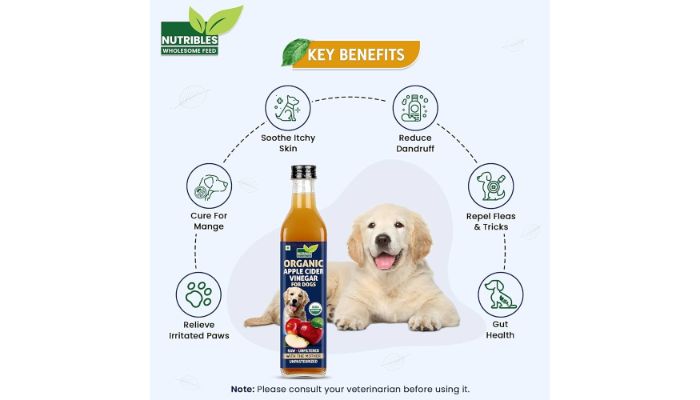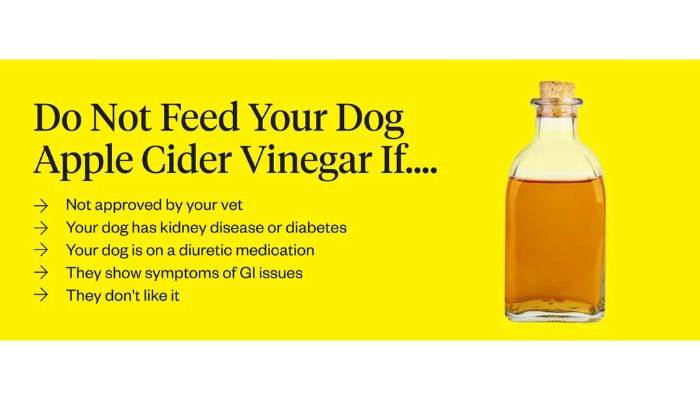You’ve likely heard the saying, ‘A little vinegar cleanses the palate,’ but when it comes to your furry friend, is it a treat or a toxin? In this deep dive, you’ll uncover the sour truth behind vinegar’s impact on dogs.
We’ll explore its components, potential health benefits, and risks, offering you safe usage guidelines and alternative treats.
Let’s decipher whether this zesty staple should find its way into your dog’s diet.
Understanding Vinegar’s Components:

In examining vinegar’s components, you’ll find that its main ingredient is acetic acid, which is created through the fermentation of ethanol by acetic acid bacteria. This chemical is responsible for vinegar’s distinctive sour taste and strong odor. The concentration of acetic acid in vinegar can vary, typically ranging from 4% to 8% by volume for table vinegar.
The pH levels of vinegar are also quite significant, usually falling between 2 and 3, making it very acidic. This acidity can have various effects when ingested or used topically. For dogs their digestive systems are different from humans, and the high acidity of vinegar could potentially cause irritation or discomfort. It’s crucial to understand these properties when considering vinegar’s safety for canine consumption or use.
Health Benefits Of Vinegar For Dogs:
Despite its acidity, when used appropriately, vinegar may offer your dog certain health benefits, such as aiding digestion and repelling fleas. The acidic reaction of vinegar in your dog’s system can create an environment that supports the breakdown of food, facilitating smoother digestive processes.

Moreover, the potent smell of vinegar is known to be a natural flea deterrent, which could be a non-toxic solution to keeping these pests at bay.
It’s important to dispel nutritional myths that suggest vinegar is a cure-all. While it has its advantages, vinegar should be used in moderation and only under the guidance of a veterinarian to prevent any adverse effects.
Always consider your dog’s specific health needs and sensitivities before incorporating vinegar or any new food into their diet.
Risks of Vinegar Consumption:

While a small amount of vinegar can be beneficial for your dog, it’s crucial to understand the risks associated with its consumption, as excessive intake can lead to health issues. Vinegar’s high acidity can cause acidic reactions in your dog’s digestive system, leading to stomach upsets or irritation. If your dog already suffers from gastrointestinal sensitivities, vinegar may exacerbate these conditions.
Moreover, the acidic nature of vinegar poses a risk for dental erosion. Frequent exposure to acidic foods or liquids can wear down the enamel on your dog’s teeth, leading to dental discomfort, increased sensitivity, and potentially serious oral health problems.
It’s vital to consider these risks and consult with your veterinarian before incorporating vinegar into your dog’s diet.
Vinegar Safe Usage Guidelines:
Ensure you’re following proper guidelines when giving your dog vinegar to avoid any potential health risks. Vinegar’s acidic nature can lead to an acidic reaction in dogs if not administered correctly. Practice dosage caution to prevent any adverse effects.
Here are four safe usage guidelines to consider:
- Dilution: Always dilute vinegar with water before offering it to your dog. A safe ratio is typically one teaspoon of vinegar to one cup of water.
- Frequency: Limit vinegar treats to once or twice a week to avoid acidity buildup.
- Introduction: Start with a small amount to assess your dog’s tolerance.
- Consultation: Speak with a veterinarian before adding vinegar to your dog’s diet, especially if they have a pre-existing condition.
Vinegar Alternatives For Dogs:
Instead of relying on vinegar, you can treat your dog to various safe and nutritious alternatives. When considering treat selection, it’s important to focus on options that cater to your dog’s health and flavor preferences. Many dogs enjoy fresh fruits and vegetables, such as carrots, blueberries, and apples—just make sure they’re free of seeds and cores.
Lean meats like chicken, turkey, or beef, cooked without any seasoning, are also excellent choices. Remember, treats shouldn’t exceed 10% of your dog’s daily caloric intake to maintain a balanced diet.
Always consult with your vet before introducing new treats, especially if your dog has specific dietary restrictions or allergies. By choosing the right treats, you’ll keep your furry friend both happy and healthy.
Frequently Asked Questions:
Your dog’s reaction to vinegar doesn’t typically vary by breed, but size considerations are important as smaller dogs may be more sensitive to the acidic substance due to their proportionally larger surface area-to-volume ratio.
You can’t teach an old dog new tricks, but when it comes to vinegar benefits and smell training, there’s no evidence that vinegar exposure affects a dog’s sense of smell or taste over time.
You should be aware that vinegar toxicity and allergy risks in dogs with certain conditions can worsen if they consume vinegar. Always consult your vet before adding it to your dog’s diet.
Vinegar’s acidity can weaken tooth enamel, leading to sensitivity. You should use diluted vinegar cautiously, as concentrated amounts may harm your dog’s dental health despite potential hygiene benefits. Always consider enamel sensitivity.
Different vinegars have varying acidity levels, impacting potential toxicity for dogs. Apple cider vinegar, often used in culinary settings, can be less harmful due to its slightly lower acidity compared to white or balsamic vinegar.
Conclusion:
In sum, while vinegar isn’t poison to your pooch, it’s like a double-edged sword—offering potential health perks alongside risks. Use it sparingly and wisely, adhering to safe guidelines.
Remember, there’s a smorgasbord of dog-friendly treats that are healthier and tail-wag-approved. Trust evidence-based choices to keep your furry friend not just happy, but thriving.

Hey there, I’m Janet Brooks, a dog-loving student from California. I’m all about helping pups in need, especially those without homes. Me and my awesome friends work together to give shelter and love to stray dogs. Oh, and I also write blogs about dogs to share helpful info.